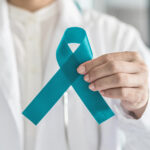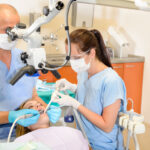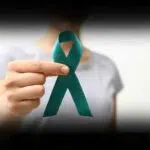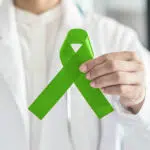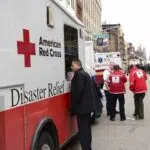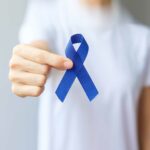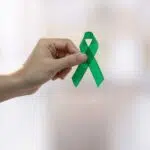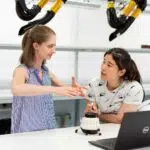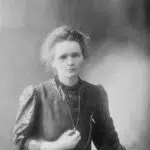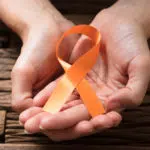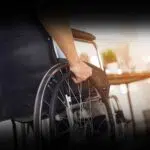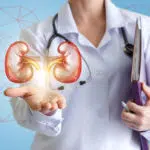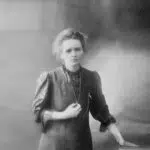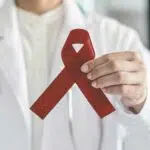We recognize National Colorectal Cancer Month to raise awareness for the fourth most common type of cancer in the United States. With well over 100,000 new cases each year and over one million cases total ‘Colon Cancer’ is a huge problem. But with early detection of this disease, it is estimated that well over half of the deaths that occur annually could be prevented. Thanks to National Colorectal Cancer Awareness Month, a much-needed spotlight is being cast on the importance of early detection. In March, we come together to provide hope and advocate for awareness.
History of National Colorectal Cancer Awareness Month
According to the American Cancer Society, anyone can develop Colon cancer, but some studied factors are: A diet that’s high in red meats (such as beef, pork, lamb, or liver) and processed meats (like hot dogs and deli meat) raises your colorectal cancer risk. Age and smoking are also risk factors. The best thing you can do to avoid this cancer is to stay active, don’t smoke, eat a diet full of vegetables instead of red meat, and get regular colon screenings, starting at age 45, or younger, if you have a family member who has had this cancer.
Colon cancer is treatable and is not necessarily a death sentence. The reason the cancer is more deadly for U.S. adults is because 20-25% of patients have metastatic disease at the time of diagnosis, which means the cancer has already spread to other parts of the body. Still, this may be cured with a range of treatment options available, including surgery to remove the cancer, chemotherapy, and radiation therapy, depending on how far the cancer has spread.
It was in the year 2000 that President Clinton officially recognized National Colorectal Cancer Month. Since then various organizations have worked together to try and raise awareness and increase early detection.
National Colorectal Cancer Awareness Month timeline
The American Cancer Society changed its guidelines to recommend people get screened at age 45, instead of age 50.
The Welch Allyn Corporation introduced the video endoscope, enabling the display of the image on a video screen.
One of the first colonoscopies was successfully performed.
Dr. William Wolff and Hiromi Shinya came up with the endoscope that would later be used to perform the colonoscopy.
National Colorectal Cancer Awareness Month FAQs
What are the early signs of colon cancer?
Many people with colon cancer experience no symptoms in the early stages of the disease. However, some symptoms include a persistent change in your bowel habits, including diarrhea or constipation or a change in the consistency of your stool; Rectal bleeding or blood in your stool; Persistent abdominal discomfort, such as cramps, gas or pain; A feeling that your bowel doesn’t empty completely; Weakness or fatigue, or unexplained weight loss.
How bad is colon cancer?
It’s a deadly cancer but it’s one of the easiest diseases to detect and, in its earliest stages, it’s also one of the most curable cancers.
When is National Colorectal Cancer Month?
March
National Colorectal Cancer Awareness Month Activities
Do some research.
The scientific medical community is always coming up with new discoveries and new findings, and the statistics change over time. Do some research and educate yourself so that your awareness improves and you can pass that knowledge on to those around you.
Talk about it.
Though the word ‘cancer’ is difficult to bring up on its own, this cancer is common, and nothing to be ashamed of. You could save a life if you recommend a friend to get screened.
Post on social media
Share the knowledge of this preventable disease, and encourage others to do the same, shame-free.
5 FACTS ABOUT COLON CANCER:
A person may have colon cancer, with no symptoms at all.
According to the Colon Cancer Coalition, patients who are diagnosed with colon cancer often do not have any symptoms.
If you were born in the 90s
If you were born in the 1990s, you have double the risk of colon cancer and, four times the risk of rectal cancer than those born in 1950. A disappointing statistic for any millennials.
Colon cancer runs in the family
People with a parent, sibling, or child with colorectal cancer have two or three times the risk of developing colon cancer, compared to those with no family history of the disease.
It is the 3rd leading cause of death for young adults
The CCC estimates that in 2020, there will be about 18,000 cases of colorectal cancer diagnosed in people under 50, the equivalent of 49 new cases per day.
Screening works
Colorectal cancer incidence rates in individuals of screening age have been declining in the U.S. since the mid-1980s. This is due to increased awareness and screening, but the screening rate remains low, especially among those who are uninsured or don’t have doctor’s offices within reasonable driving distance of their home.
WHY COLORECTAL CANCER MONTH IS IMPORTANT
It’s preventable,
The earlier the cancer is found, the better chance the person has to beat it. That is why early detection is so important.
It’s treatable.
Though it’s a deadly disease, it’s a treatable disease. Surgery is the primary form of treatment and results in a cure approximately 50% of the time.
It’s easy to detect.
A cancerous polyp can take as many as ten to 15 years to develop into cancer. With regular screening, doctors can remove polyps before they have the chance to turn into cancer.
National Colorectal Cancer Awareness Month dates
| Year | Date | Day |
|---|---|---|
| 2026 | March 1 | Sunday |
| 2027 | March 1 | Monday |
| 2028 | March 1 | Wednesday |
| 2029 | March 1 | Thursday |
| 2030 | March 1 | Friday |


